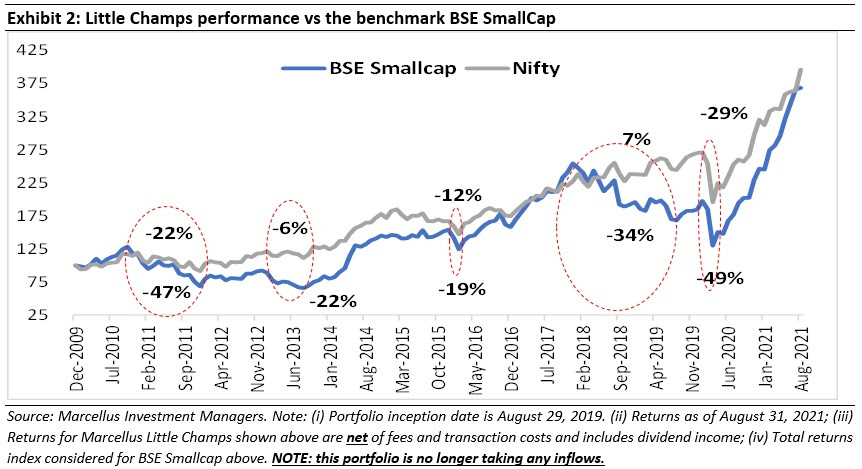BSE Small Cap Index: Legal Risks in Construction Stock Investment
Exploring the realm of BSE Small Cap Index: Legal Risks in Construction Stock Investment opens up a world of complexities and opportunities. Delve into the nuances of legal implications in construction stock investments with us.
Overview of BSE Small Cap Index Legal Risks in Construction Stock Investment
The BSE Small Cap Index is a stock market index that tracks the performance of small-cap companies listed on the Bombay Stock Exchange in India. Small-cap stocks are generally considered riskier investments compared to large-cap stocks but offer the potential for higher returns.
Investing in construction stocks within the BSE Small Cap Index comes with its own set of legal risks. These risks can include regulatory challenges, compliance issues, environmental regulations, land acquisition disputes, labor disputes, and contractual disputes, among others. It is essential for investors to be aware of these legal risks before making investment decisions in the construction sector.
Impact of Legal Factors on Investment Decisions in the Construction Sector
Legal factors play a crucial role in shaping investment decisions in the construction sector. Investors need to consider the legal framework governing construction activities, including building codes, zoning regulations, environmental laws, and labor laws. Non-compliance with these legal requirements can lead to regulatory penalties, project delays, cost overruns, and reputational damage.
- Contractual Disputes: Legal disputes related to construction contracts can arise due to issues such as project delays, cost overruns, quality defects, and breach of contract. These disputes can result in financial losses for investors and negatively impact project outcomes.
- Land Acquisition Disputes: Construction projects often involve land acquisition, which can lead to disputes over land ownership, compensation, and resettlement. Uncertainty surrounding land acquisition can pose significant legal risks for investors in the construction sector.
- Environmental Regulations: Construction activities are subject to environmental regulations aimed at protecting the environment and public health. Failure to comply with these regulations can result in fines, project shutdowns, and legal liabilities for investors.
- Labor Disputes: The construction industry is susceptible to labor disputes related to wages, working conditions, safety standards, and unionization. Investors need to navigate these labor-related legal risks to ensure smooth project execution and avoid disruptions.
Regulatory Framework and Compliance Issues
Investing in construction stocks in the BSE Small Cap Index comes with its own set of regulatory challenges and compliance issues that investors need to be aware of to mitigate legal risks. Understanding the regulatory framework governing the construction sector is crucial to navigating these potential pitfalls.
Regulatory Framework for Construction Stocks
The construction sector in India is governed by various laws and regulations, including building codes, environmental regulations, labor laws, and land acquisition laws. Compliance with these regulations is essential for construction companies to operate legally and sustainably. Failure to comply with these regulations can result in fines, penalties, and even project shutdowns.
Common Compliance Issues Faced by Investors
Investors in the construction sector often face challenges related to obtaining necessary permits and approvals, ensuring environmental compliance, managing labor issues, and adhering to building codes. These compliance issues can delay projects, increase costs, and erode investor confidence. It is crucial for investors to conduct thorough due diligence to identify and address these issues before investing in construction stocks.
Legal Risks of Non-Compliance
Non-compliance with regulatory requirements can expose investors to significant legal risks, including lawsuits, regulatory investigations, financial penalties, reputational damage, and project delays. In extreme cases, non-compliance can lead to project cancellations or even criminal liability for company executives. It is essential for investors to stay informed about regulatory changes and ensure that the companies they invest in are compliant with all applicable laws and regulations.
Contractual Obligations and Dispute Resolution

When it comes to construction stock investments, understanding contractual obligations is crucial for investors to mitigate legal risks and ensure smooth operations. Contracts Artikel the rights and responsibilities of each party involved in the investment, setting clear expectations and guidelines for the project.
Common Disputes in Construction Sector
- Delays in project completion: One of the most common disputes in the construction sector arises from delays in completing the project. This could be due to various factors such as weather conditions, labor shortages, or material delays.
- Payment disputes: Issues related to payment, including late payments, disputes over payment amounts, or non-payment, can lead to conflicts between the parties involved.
- Quality of work: Disputes can also arise if the quality of work delivered does not meet the agreed-upon standards in the contract, leading to disagreements and potential legal actions.
Role of Dispute Resolution Mechanisms
- Mediation: In cases of disputes, mediation can be a cost-effective and efficient way to resolve conflicts. A neutral third party helps the parties come to a mutual agreement without the need for litigation.
- Arbitration: Another common method of dispute resolution is arbitration, where a neutral arbitrator reviews the case and makes a binding decision that both parties must adhere to.
- Litigation: As a last resort, litigation involves taking the dispute to court. While this method can be time-consuming and expensive, it provides a final resolution to the conflict.
Environmental and Safety Regulations

Environmental regulations play a crucial role in shaping investment decisions in the construction sector. These regulations are designed to protect the environment from potential harm caused by construction activities and ensure sustainable development.Safety regulations, on the other hand, are put in place to safeguard the well-being of workers, visitors, and the general public on construction sites.
Compliance with safety standards is essential for minimizing the risk of accidents and injuries, which can have significant legal and financial implications for construction companies.
Impact of Environmental Regulations
Environmental regulations can have a direct impact on construction stock investments. Companies operating in the construction sector must adhere to environmental laws governing issues such as waste management, pollution control, and natural resource conservation. Failure to comply with these regulations can lead to fines, lawsuits, and reputational damage, all of which can negatively affect stock prices and investor confidence.
- Companies investing in construction stocks need to assess the environmental compliance record of the companies they are considering. This includes reviewing past violations, environmental impact assessments, and sustainability initiatives.
- Changes in environmental regulations can also impact construction projects and timelines, potentially affecting the profitability of investments in construction stocks.
- Investors should closely monitor how construction companies are adapting to evolving environmental standards and regulations to mitigate risks and capitalize on emerging opportunities.
Influence of Safety Regulations on Investment Decisions
Safety regulations are a critical factor in investment decisions within the construction sector. Investors need to consider how construction companies prioritize safety measures to protect workers, reduce accidents, and maintain compliance with occupational health and safety standards.
Safety incidents can result in legal liabilities, project delays, and reputational harm, all of which can impact the financial performance of construction companies and their stock value.
- Investors should evaluate a construction company's safety record, training programs, and commitment to creating a safe work environment when assessing investment opportunities.
- Companies with strong safety cultures are more likely to attract investors who prioritize risk management and ethical business practices.
- Investors should also consider how safety regulations influence project costs, timelines, and overall profitability in the construction industry.
Legal Consequences of Non-Compliance with Environmental and Safety Standards
Non-compliance with environmental and safety standards can result in severe legal consequences for construction companies. Violations of these regulations can lead to fines, penalties, project shutdowns, and even criminal charges in some cases.
- Legal actions resulting from non-compliance with environmental and safety standards can significantly impact a construction company's financial health and reputation in the market.
- Investors should closely monitor regulatory developments and enforcement actions related to environmental and safety compliance to assess the legal risks associated with their construction stock investments.
- Companies that prioritize environmental sustainability and workplace safety are better positioned to mitigate legal risks and maintain long-term value for investors.
Conclusion

As we wrap up our discussion on BSE Small Cap Index: Legal Risks in Construction Stock Investment, remember that understanding the legal landscape is crucial for making informed investment decisions in the dynamic construction sector.
Clarifying Questions
What is the significance of the BSE Small Cap Index?
The BSE Small Cap Index represents small-cap companies in the stock market, providing insights into the performance of these entities.
How do regulatory frameworks affect construction stock investments?
Regulatory frameworks impact investment decisions by setting guidelines that investors must adhere to, influencing the risk profile of investments.
Why are contractual obligations crucial in construction stock investments?
Contractual obligations help define the responsibilities of parties involved in investments, reducing the likelihood of disputes.